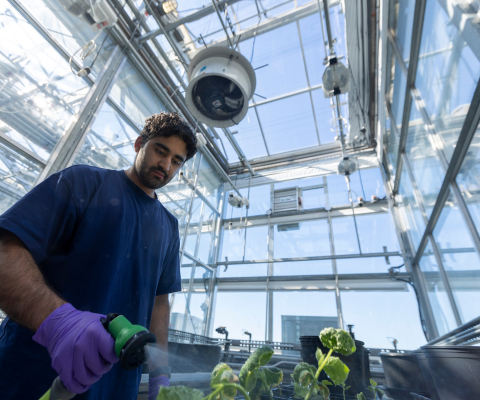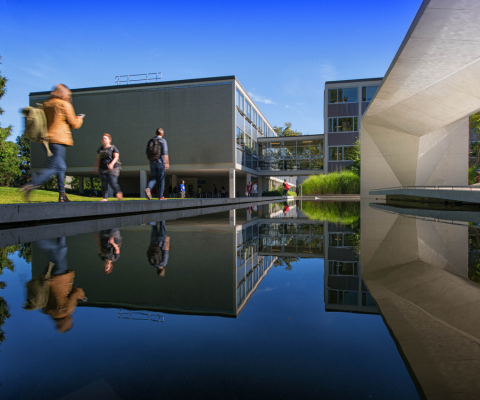How universities are working to fight climate change

The 28th Conference of the Parties (COP28) for the UN Framework Convention on Climate Change is set to take place in the United Arab Emirates from November 30 to December 12, 2023. This significant event marks a pivotal moment for global collaboration on effective climate action, building on the momentum from previous COP meetings.
Established in 1992, the COP serves as the primary decision-making body for the UNFCCC, convening annually to assess and advance climate measures. Notably, COP21 resulted in the historic Paris Agreement, aiming to limit global temperature increases to 1.5C by 2100.
COP28 has four cross-cutting topics of discussion this year:
- Finance
- Technology and innovation
- Inclusion
- Frontline communities
In November 2023, the Commissioner of the Environment and Sustainable Development found that Canada is not on track to meet its goal to cut greenhouse gas emissions by 40 to 45% below 2005 levels by 2030. Canada’s universities play a critical role in bringing Canada closer to its goals. Learn how our institutions are contributing to each COP28 theme.
Climate-friendly investing
Climate impacts are not limited to our daily activities; they’re also reflected in our financial investments. The University of Waterloo is one example of a university who has pledged to reduce the carbon footprint of its pension and endowment investment portfolios by 50% by 2030 and reach full carbon neutrality by 2040. This move safeguards financial returns while prioritizing investments in climate innovation and proactive climate risk integration
Innovating green tech for transportation
All levels of government, sectors and disciplines benefit from innovative and sustainable technological solutions. Universities are key players in researching and developing those impactful technologies to use in wider society, from large-scale production to solutions used in the average family home.
Université du Québec à Trois-Rivières, for example, is a leader in Quebec’s Energy Transition Valley, which ultimately aims to decarbonize the industrial-port sector through the use of green hydrogen, development of the battery sector and electrification of transportation. The result of this initiative will help transition businesses, the production sector and the public transition to renewable energy and reduce consumption of fossil fuels.
Engaging all in climate solutions
Inclusion in climate research means bringing everyone into the solution—all peoples, countries, ages, walks of life and communities. Everyone must know and understand how to make sustainable changes and have adequate means to enact changes for us to reach our climate goals.
The University of British Columbia’s Centre for Climate Justice aims to engage all of society in their solutions, providing support, knowledge-sharing opportunities, public engagement and mentorship of marginalized communities in their activities. Aside from the interdisciplinary research they conduct to address our multiple climate crises, they collaborate with movements, communities and policymakers to ensure everyone has the tools needed to make positive changes in their lives, communities or organizations.
Supporting frontline communities
Some communities are dealing with the impacts of climate change on a more severe, regular basis than others, through weather events like flooding, wildfires and extreme storms. It’s imperative that solutions are geared towards helping these communities survive these events, and that they address the root cause. Wildfires in Canada have been particularly bad over the last few years and are just getting worse.
The University of Alberta’s Wildfire Analytics Team has made significant progress in wildfire preparedness with the development of a fast and easy mapping method, which identifies possible wildfire pathways. With this tool, communities can pre-plan evacuation routes, prioritize firefighting efforts and proactively reduce fire risks.
Universities are working hard to do their part in minimizing the impacts of climate change on all levels of operations. From green campus infrastructure and developing the latest clean technology, to changing policies and investments for sustainable operations, Canadian universities will continue their endeavors for a greener, cleaner Canada.
About Universities Canada
Universities Canada is the voice of Canada’s universities at home and abroad, advancing higher education, research and innovation for the benefit of all Canadians.
Media contact:
Lisa Wallace
Assistant Director, Communications
Universities Canada
[email protected]
Tagged: Environmental sustainability, Research and innovation




